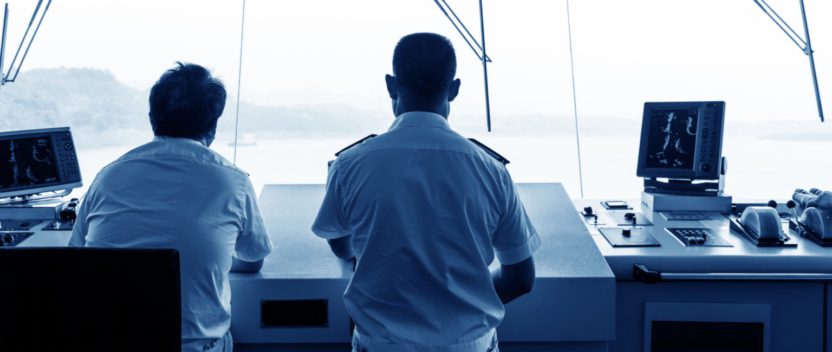Digital disruption? Shipping’s challenges are all too physical
As we’ve noted many times before, it is impossible to attend a shipping event these days without reference being made to the new digital economy and the potential for disruptive effects on B2B business models.
Despite many of those regularly name-checked occupying the B2C rather than B2B environment, their influence is apparently growing.
While it is certainly exciting to discuss the future of shipping in a comfortable air-conditioned room rather than on the North Atlantic in winter, the fact remains that shipping’s fundamental challenges have less to do with the virtual world and more with the physical one.
Assuming that, as was suggested to me recently, we are not all living in a digital simulation invented by future civilisations as a kind of vast multi-player computer game, we have big issues to overcome in the next couple of years.
Given that this is happening at a time when earnings are for the most part just picking themselves up off the floor, there is going to be some very hard work needed to shift the industry to a position where it can start being smarter.
The derived demand for shipping from globalisation still has some way to run but a combination of politics and protectionism is building as geopolitical tensions increase. The result of that, as ICS Secretary General Peter Hinchliffe noted during Sea-Asia, is that it is increasingly difficult to achieve consensus between national governments.
Without that, intergovernmental organisations grind to a halt and lose both technical and moral arguments that global rather than regional standards and regulation are the greater good.
This should worry shipping because its next big regulatory hurdle is achieving a workable solution to paying for CO2 emissions. Since all previous attempts have failed and the EU is primed to take unilateral action if the IMO fails, the stakes are high.
For BIMCO Secretary General Angus Frew we are in era of not just political uncertainty but are unprepared for the longer-term impacts of greater protectionism, subsidies and trade controls. And BIMCO is just as worried about the resurgence of piracy in the Indian Ocean in case the political will to keep the necessary military resources deployed fails.
Environment Director, Regional Manager Asia-Pacific, INTERTANKO Tim Wilkins agreed, noting the shift of political influence since the 1990s from Europe to the US and now to Asia. This impacts the way shipowners could operate and required constant vigilance but asked what he saw as the biggest disruptions he had no doubts.
“The disruptor is the speed at which legislation is pushed through. We have to change that. Regulation requires fast changes but vessels have a 20-year lifespan. The political uncertainty is driving a layer of piecemeal regulation that is increasing complexity.”
Though the industry is yet to implement the Ballast Water Management Convention, it’s next big challenge is on the doorstep – the 2020 fuel switch. As Wilkins pointed out, at least the industry has some certainty on the implementation date, but everything else is up in the air.
The technical concerns are principally whether there will be enough fuel of the correct quality available in the right places at the right time and whether the changeover results in technical problems. Dwarfing these questions is what the effect will be on the prices charged to move cargo.
Fuel accounts for between one third and two thirds of the total cost base for most shipping companies and some reasonable assumptions about the premium to heavy fuel oil put the increase at anywhere between 40-70% for low sulphur fuel.
This means the impact will far exceed the start of the sulphur emission control areas, and that shippers will have no choice but to pass costs through to their customers and ultimately, the consumer.
So would the deadline move as we get closer to 2020? Hinchliffe says not. “The deadline is not going to move, but will there be enough fuel? We don’t know and neither does the IMO. It’s in the hands of the member states to make sure domestic oil companies prepare. My gut feeling is that there will not be enough fuel but the shortage will short-lived. It will be disruptive for the industry.”
He predicted a two-year period of very high prices for low sulphur fuel oil. Shipowners are right to be concerned because whether they choose to buy LSFO or install a sulphur scrubber, there is little comfort on cost, reliability or regulatory environment.
Not everyone thinks scrubbers will work well enough in practice, not all governments will permit discharge of scrubber waste water and as the deadline nears, the unit cost figures for scrubbers are achieving orbit.
Frew agreed that BIMCO is “seriously concerned about 2020 and we also see there will be shortages in various locations and it is incredibly difficult to prepare.” For BIMCO the issue also touches the problem not just of regulatory compliance but enforcement too.
Given the spread between non-compliant HFO and very expensive LSFO, there is a huge financial incentive not to comply. Because ships will be outside national jurisdictions they will be required to report to their flag states and port inspection will vary by region. “How are we going to enforce this? The good guys are really going to be hurt if the bad guys are allowed to get away with it,” he added.
Frew said BIMCO members are equally concerned about the technical issues and whether in demand squeeze, poor quality fuels that have the ability to ‘destroy’ engines will hit the market, further increasing risk.
Wilkins argued that it was up to the industry take affirmative action, through its inputs to IMO pressing the regulators to ensure the supply is there and that going forward whatever investment decision the owner decides to take is future-proofed.
The trouble is that – from the perspective of 2017 at least – that future looks less and less predictable. And while some of the solutions being suggested to speed up the transition are an interesting distraction, the more pressing need will be how to re-think the transition between an uncertain present and a sustainable future.


